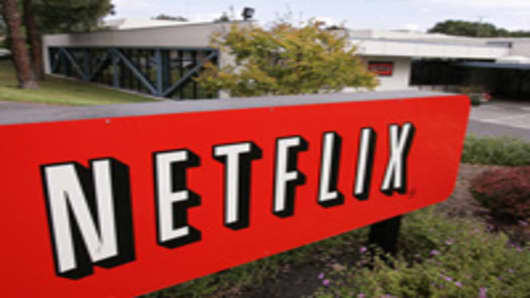With Whitney Tilson of T2 Partners throwing in the towel on his Netflix short and Netflix hitting another new all-time high today, Lenny Brecken of Brecken Capital really may be the last short standing.
Two of his main points:
- He believes Netflix’s earnings are overstated by the way the company amortizes content costs. According to his analysis, the ratio of content costs to amortization in the fourth quarter was half of what it was in the third quarter of 2009. At the same rate as it had been, he says, earnings would have been negative for the third and four thqarters, while 2010 pretax income would have been reduced by more than 80 percent.
A spokesman told me the ratio is impacted by the number of big deals the company has done “that have us booking it to the balance sheet the next year before they’re amortized. It’s a function of large growth in streaming spend that will correct once spending starts to flatten out. The same thing happened in DVD as we built out the DVD library faster than we amortized it.”
- He believes company is masking cash flow declines by ballooning accounts payable. His analysis shows that if 2010 operating cash flow were adjusted for the accounts payable rise it would fall below 2005 levels.



